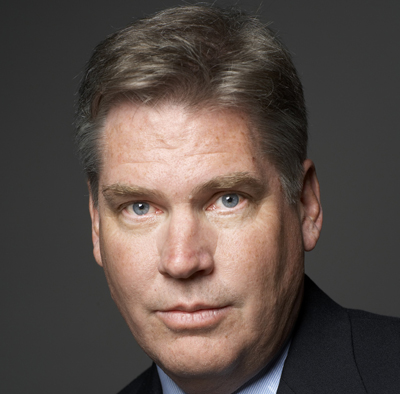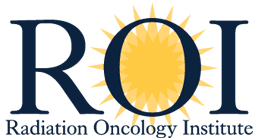James P. Hoey, MBA

Why do you support the ROI?
While several avenues of funding for radiation oncology research exist, they are often in competition with other modalities and disciplines; and, budgets for funding research are getting tighter—including government grants and commercial grants.
The ROI is the only organization that:
- Supports research and education efforts around the world that enhance and confirm the critical role of radiation therapy in improving cancer treatment.
- Endeavors to steer funds toward research on new and existing radiation therapy treatments to identify links between best practices and improved outcomes.
- Strives to stimulate research that evaluates the efficacy and cost-benefit of radiation therapy.
I believe in all of these goals—radiation oncology is a critically important treatment modality for many types and stages of cancer. The discipline has made great strides in improving patient outcomes during the 36 years that I’ve been involved in the field. I, along with many others, have family and friends who have benefited from radiation therapy. On a personal level, the ROI is a vehicle for me to both “give back” and “move forward” the discipline in a noncommercial and global arena.
Why should a company become an ROI corporate partner?
Radiation oncology is a small percentage of the health care dollar spent on cancer care. I believe that every person, company, professional organization and healthcare provider involved with radiation therapy should contribute to the ROI. We are the stewards of our discipline, and we live in an era when alternative treatment modalities compete for limited dollars. It’s our collective responsibility to make sure that accurate information proclaiming the value of radiation therapy is heard loud and often through all of the information and misinformation that we are subjected to in the Internet/social media age.
The ROI is a non-profit vehicle dedicated to funding the critical research that quantifies and confirms the value of radiation therapy—accurate information.
Thus far, the ROI endowment has been built largely on the backs of ASTRO, a small percentage of individual clinical and commercial professionals and a small percentage of commercial vendors. I am lucky to be part of one of them—Elekta. There is strength in numbers. If EVERY radiation oncology commercial vendor contributed annually, we could significantly grow the ROI’s resources, which would fund more research programs, which would strengthen our ability to quantify the value of radiation therapy. This benefits the vendor, their employees, their customers (providers) and most importantly…the patient.
What motivates you to be involved with the ROI as a member of the Board of Trustees?
I believe the work the ROI is doing is important and it will make a difference. But to succeed it needs significant involvement from within our industry—commercial vendors, providers and individuals. Financial contributions are critical; my company and I both contribute, but there needs to be human resource contribution as well. Participating on the ROI board is a way for me to contribute beyond periodic financial contributions.
How did you get into the field of radiation oncology?
I double-majored as an undergraduate—Biomedical Engineering and Business. The Biomedical Engineering degree included an independent project. Ravinder Nath, PhD, FACR, was my project professor. I spent about 14 months studying and working under his tutelage in Yale’s Hunter Radiation Therapy Center. Upon graduation, Ravi provided me with contacts and references for medical device vendors involved in radiation oncology. That was 1981, and I’ve been in the field ever since.
What do you see as the greatest challenge in radiation oncology today?
I think that depends on the “geography.” Here in the U.S., there is tremendous pressure to simultaneously control costs and expand insurance coverage. All health care disciplines are competing for precious reimbursement, and radiation oncology is no exception. As a discipline, we need to do a better job of quantifying the value of radiation oncology (value being outcome/cost), not only in terms of its absolute benefit for patients with many types and stages of cancer, but also its value relative to alternative treatments—comparative effectiveness.
In other areas of the world, the issue is patient access—the clinical/professional and technical infrastructure must be developed to provide patient access to this life saving/prolonging technology. The recent report by The Lancet Oncology Commission identifies this issue very clearly. But achieving this will take significant financial and human resources.
What do you hope the ROI will achieve in the near future and in the long-term?
The 2012 National Radiation Oncology Research Needs Assessment set the direction for the ROI’s initial research funding that included safety and quality, toxicity management and the comparative value of radiation therapy. In the short-term, we need to bring these projects to completion and ensure the results are conveyed to relevant stakeholders—radiation oncology commercial and professional individuals and organizations, referring physicians and patients. Some of these projects may spawn follow-on efforts, and thanks to our endowment and annual gifts, we are also able to fund some new research.
In the long-term, I hope that a significant percentage of radiation oncology vendors, providers, professional organizations, and individual members of the radiation oncology commercial and professional community are annual contributors to the ROI. With that kind of participation, I can envision funding significant global, multi-institutional research dedicated to proving the absolute and relative value of radiation therapy in the fight against cancer.
James P. Hoey, MBA, is Executive Chairman and Head of External Relations at Elekta Holdings. Mr. Hoey serves on the ROI Board of Trustees and is a Benefactor in the ROI Founders' Circle.














